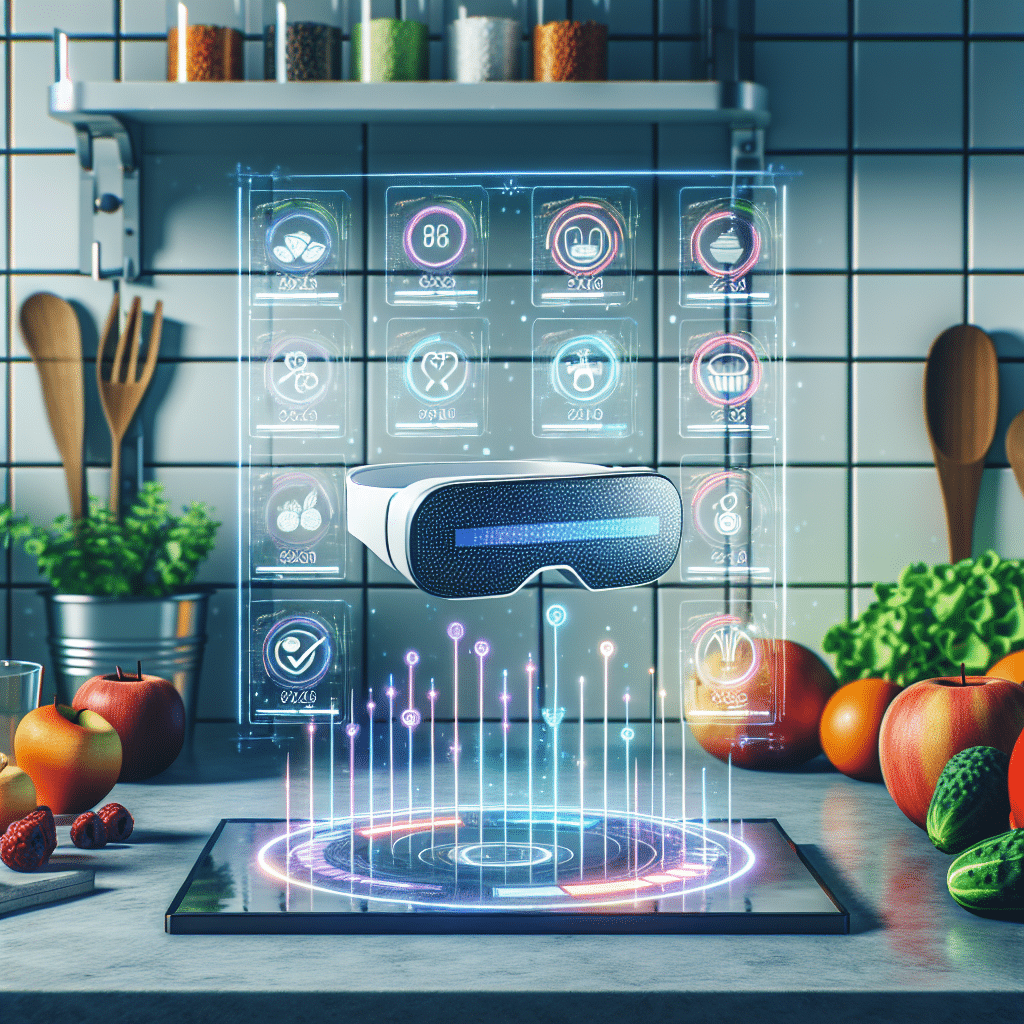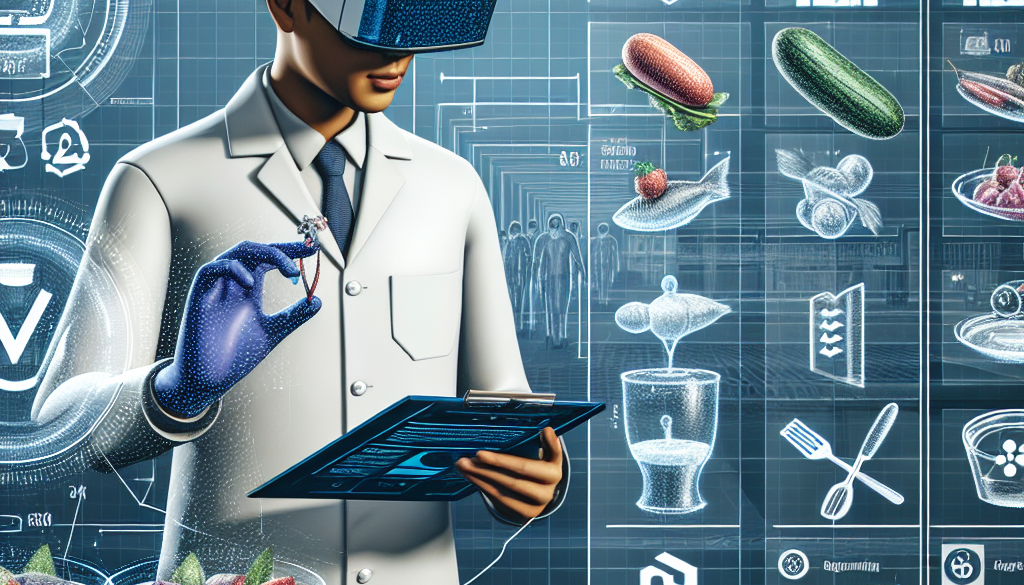How Can AR And VR Drive Food Safety?
-
Table of Contents
- AR and VR Innovations Enhancing Food Safety Practices
- The Role of AR and VR in Food Safety Training
- Improving Compliance and Monitoring with AR and VR
- Enhancing Consumer Confidence with Transparent Processes
- Statistics Supporting the Impact of AR and VR on Food Safety
- Challenges and Considerations
- Conclusion: The Future of Food Safety with AR and VR
- ETprotein: Your Partner in Food Safety and Quality
AR and VR Innovations Enhancing Food Safety Practices

Food safety is a critical concern for consumers, businesses, and regulatory bodies worldwide. With the advent of augmented reality (AR) and virtual reality (VR), the food industry is on the cusp of a technological revolution that promises to enhance food safety protocols and training methods. These immersive technologies offer innovative ways to visualize, simulate, and interact with complex processes, making them powerful tools in the fight against foodborne illnesses and contamination. In this article, we will explore how AR and VR can drive food safety and ensure a healthier future for all.
The Role of AR and VR in Food Safety Training
One of the most significant applications of AR and VR in food safety is in the realm of education and training. Traditional training methods often rely on passive learning techniques, which can be less effective in retaining information. AR and VR, on the other hand, provide interactive and engaging experiences that can lead to better comprehension and recall.
- Immersive Learning Environments: VR can simulate real-world environments, allowing trainees to practice food safety protocols in a controlled, virtual space. This hands-on approach can improve learning outcomes and prepare workers for real-life scenarios.
- Interactive Demonstrations: AR can overlay digital information onto the physical world, providing step-by-step guides and demonstrations of proper food handling and sanitation procedures.
- Enhanced Engagement: Both AR and VR can make training more engaging, which is crucial for maintaining the attention and interest of employees, leading to better adherence to food safety standards.
Improving Compliance and Monitoring with AR and VR
Ensuring compliance with food safety regulations is a constant challenge for the food industry. AR and VR can offer innovative solutions to monitor and maintain high standards of hygiene and safety.
- Real-time Feedback: AR can provide workers with immediate feedback on their actions, correcting mistakes as they occur and reinforcing proper techniques.
- Remote Inspections: VR can enable remote inspections of facilities, allowing auditors to virtually tour a site and assess compliance without being physically present.
- Data Visualization: AR can visualize data from sensors and IoT devices in real-time, helping staff to quickly identify and address potential safety issues.
Enhancing Consumer Confidence with Transparent Processes
Consumer trust is paramount in the food industry. AR and VR can help businesses demonstrate their commitment to food safety by making their processes more transparent to customers.
- Virtual Tours: VR can offer customers virtual tours of production facilities, showcasing the rigorous safety measures in place.
- Information Accessibility: AR can allow consumers to scan products with their smartphones to access detailed information about sourcing, handling, and safety checks.
Statistics Supporting the Impact of AR and VR on Food Safety
While the integration of AR and VR in food safety is still emerging, available statistics highlight the potential impact of these technologies:
- A study by the Food Safety and Inspection Service (FSIS) found that continuous training, which can be enhanced by AR and VR, leads to better compliance with food safety regulations.
- Research by the National Institute of Standards and Technology (NIST) suggests that immersive training can improve performance by up to 70% compared to traditional methods.
Challenges and Considerations
Despite the promising applications of AR and VR in food safety, there are challenges to consider:
- Cost: The initial investment in AR and VR technology can be significant, though costs are decreasing as the technology becomes more widespread.
- Adoption: There may be resistance to adopting new technologies, especially from workers accustomed to traditional methods.
- Technical Limitations: AR and VR technologies are still evolving, and there may be limitations in terms of hardware capabilities and software reliability.
Conclusion: The Future of Food Safety with AR and VR
In conclusion, AR and VR have the potential to revolutionize food safety by enhancing training, improving compliance and monitoring, and increasing consumer confidence through transparent processes. While there are challenges to overcome, the benefits these technologies offer make them an exciting prospect for the future of the food industry. As adoption grows and costs decrease, we can expect to see more widespread use of AR and VR in ensuring the safety of our food supply.
ETprotein: Your Partner in Food Safety and Quality
In the pursuit of food safety and quality, it’s essential to have reliable partners who provide top-notch ingredients. ETprotein is a company that stands out in this regard, offering a range of high-quality protein products that can be integral to food safety and health.
ETprotein’s offerings, including various organic plant-based proteins and L-(+)-Ergothioneine, are characterized by their neutral taste, non-GMO, and allergen-free attributes. These products meet the highest standards of purity and quality, making them suitable for a wide range of applications in the food and beverage industry.
For businesses looking to enhance their food safety practices while also providing nutritious and safe products, ETprotein’s protein solutions are an excellent choice. Their commitment to quality and customer service makes them a valuable ally in the ongoing effort to ensure food safety.
About ETprotein:
ETprotein, a reputable protein and L-(+)-Ergothioneine (EGT) Chinese factory manufacturer and supplier, is renowned for producing, stocking, exporting, and delivering the highest quality organic bulk vegan proteins and L-(+)-Ergothioneine. They include Organic rice protein, clear rice protein, pea protein, clear pea protein, watermelon seed protein, pumpkin seed protein, sunflower seed protein, mung bean protein, peanut protein, and L-(+)-Ergothioneine EGT Pharmaceutical grade, L-(+)-Ergothioneine EGT food grade, L-(+)-Ergothioneine EGT cosmetic grade, L-(+)-Ergothioneine EGT reference grade and L-(+)-Ergothioneine EGT standard. Their offerings, characterized by a neutral taste, non-GMO, allergen-free attributes, with L-(+)-Ergothioneine purity over 98%, 99%, cater to a diverse range of industries. They serve nutraceutical, pharmaceutical, cosmeceutical, veterinary, as well as food and beverage finished product distributors, traders, and manufacturers across Europe, USA, Canada, Australia, Thailand, Japan, Korea, Brazil, and Chile, among others.
ETprotein specialization includes exporting and delivering tailor-made protein powder and finished nutritional supplements. Their extensive product range covers sectors like Food and Beverage, Sports Nutrition, Weight Management, Dietary Supplements, Health and Wellness Products, and Infant Formula, ensuring comprehensive solutions to meet all your protein needs.
As a trusted company by leading global food and beverage brands and Fortune 500 companies, ETprotein reinforces China’s reputation in the global arena. For more information or to sample their products, please contact them and email sales(at)ETprotein.com today.












